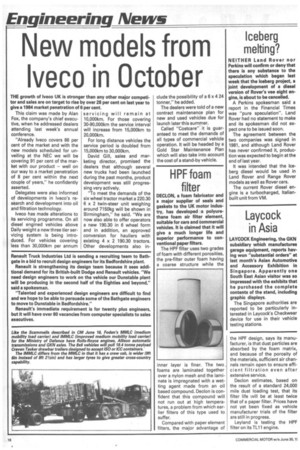HPF foam filter
Page 20

If you've noticed an error in this article please click here to report it so we can fix it.
DECLON, a foam fabricator and a major supplier of seals and gaskets to the UK motor industry, has developed a polyurethane foam air filter element, suitable for cars and commercial vehicles. It is claimed that it will give a much longer life and superior performance to conventional paper filters.
The HPF filter uses two grades of foam with different porosities, the pre-filter outer foam having a coarse structure while the inner layer is finer. The two , foams are laminated together over a nylon mesh and the laminate is impregnated with a wetting agent made from an oil based compound. Declon is confident that this compound will not run out at high temperatures, a problem from which earlier filters of this type used to suffer.
Compared with paper element filters, the major advantage of the HPF design, says its manufacturer, is that dust particles are absorbed by the foam matrix, and because of the porosity of the materials, sufficient air channels remain open to ensure efficient filtration even after extensive service.
Declon estimates, based on the result of a standard 24,000 mile dust loading test, that its filter life will be at least twice that of a paper filter. Prices have not yet been fixed as vehicle manufacturer trials of the filter are still in progress.
Leyland is testing the HPF filter on its TL11 engine.






















































































